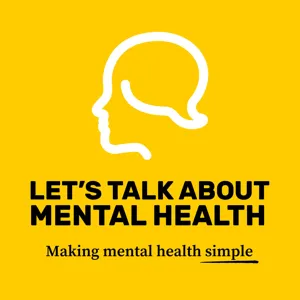Podcast Summary
Embrace life's challenges with love or resilience: Regardless of external circumstances, we can choose to love life or become more resilient. Mental flexibility and emotional resilience are crucial for personal growth.
Our attitude towards life, even during challenging times, can greatly impact our overall well-being. As Tara Lowenthal, the host of Unfucked Your Brain, explains, we have the option to either resent reality or love it, regardless of external circumstances. This doesn't mean ignoring the harsh realities of life or becoming complacent, but rather finding joy in the present moment. Additionally, mental flexibility, the ability to adapt to new ideas and perspectives, is crucial for personal growth. Our brains naturally resist being challenged or proven wrong, leading to cognitive dissonance. However, by practicing mental flexibility, we can broaden our horizons, learn new things, and become more resilient to life's ups and downs. Emotional resilience, which helps us manage our reactions to the world around us, is important, but we also need to work on being more open-minded and adaptable in our thoughts. By focusing on these skills, we can lead more fulfilling and stable lives.
The brain's resistance to contradictory ideas: Our brains naturally resist contradictory ideas, leading to cognitive dissonance and making it hard to change beliefs. Awareness and discomfort can help us challenge and expand our understanding.
Our brains have a natural tendency to resist contradictory ideas, a phenomenon known as cognitive dissonance. This mental tension can lead us to unconsciously dismiss new conflicting information and hold even more strongly to our original beliefs. This can make persuading someone of a different opinion challenging and may even backfire, causing the person to become more entrenched in their original belief. This process is an unconscious shortcut our brains use to avoid the perceived danger and exhaustion of being wrong. While we can't prevent this process entirely, we can bring it into consciousness and work on changing it in the areas where it would serve us to do so. By developing the skill of being mentally or emotionally uncomfortable, we can challenge our own beliefs and expand our understanding.
The dangers of mental rigidity: Mental rigidity can hinder intellectual growth and be detrimental due to biological and cultural factors. Allowing discomfort and being mentally flexible can lead to new ideas and effective thought work.
Mental rigidity, or the unwillingness to change one's mind, can be a dangerous and detrimental mindset. This is due to both biological and cultural factors, as our brains are wired to hold onto beliefs for safety, and our culture often values stubbornness and anti-intellectualism. Cognitive dissonance, the feeling of discomfort when our beliefs are challenged, can lead to mental rigidity instead of curiosity and openness. However, allowing discomfort and being mentally flexible can be a matter of life or death, as seen during the COVID pandemic. The ability to contemplate new ideas and change one's mind is crucial for intellectual sophistication and effective thought work. As the quote goes, "consistency is the hobgoblin of little minds," and the power of imagination and intellect is required to see things from multiple perspectives.
Exploring new beliefs requires mental flexibility: Mental flexibility allows us to consider new thoughts without immediately rejecting them, essential for challenging deeply ingrained beliefs and personal growth.
Introducing new thoughts or ideas that challenge deeply held beliefs requires mental flexibility. We're not starting from a blank slate when we encounter a new belief; instead, we're often starting from an opposing belief system that we've built up over time. Mental flexibility is the capacity to consider a new thought without immediately rejecting it, even if we can't fully believe it yet. It's the skill that helps us navigate the uncomfortable period where we hold conflicting beliefs. For example, if we've believed for a long time that we have to be a starving artist, but we're now considering the idea that we can be a wealthy artist, mental flexibility allows us to entertain both beliefs without fully committing to either one. This practice is essential for challenging deeply ingrained beliefs and making meaningful personal growth.
Embrace mental flexibility for personal growth: Explore alternative perspectives, examine new thoughts honestly, and hold competing truths to promote self-compassion and acceptance.
Mental flexibility is key to personal growth and understanding. When faced with contradictory thoughts, instead of rigidly clinging to our beliefs, we should allow ourselves to consider alternative perspectives. This doesn't mean we have to accept every new thought as truth, but rather that we should examine it honestly and understand why it might be true for someone else or potentially for us. Practicing mental flexibility also allows us to hold competing truths or thoughts about ourselves, promoting self-compassion and acceptance. By embracing discomfort and recognizing that thoughts are not threats, we can strengthen new beliefs and become more open-minded individuals. Remember, something rigid will break when forced to change, but something flexible can be shaped and molded into something new.
Embracing contradictions for personal growth: Practicing mental flexibility by accepting opposing thoughts can lead to personal growth and shifting limiting beliefs
Embracing contradictions and allowing yourself to hold opposing thoughts can help you grow and evolve, both mentally and emotionally. This practice, known as mental flexibility, can be uncomfortable at first but is essential for personal development and shifting limiting beliefs. It's important to remember that resisting what we don't like about ourselves or our thoughts won't change them. Instead, accepting and allowing these contradictions can help us move towards alignment with the person we want to be. Practicing mental flexibility involves being open to new ideas, even if they contradict our current beliefs, and learning to hold opposing thoughts together in our minds. This skill can lead to significant changes in our lives, but it requires effort and dedication to build up over time. If you're looking for support in developing mental flexibility and learning new coaching tools, consider joining a community like The Clutch, where you can connect with others and receive individual help applying these concepts to your own life.






